The first Semester is an important (and busy) time for academic staff as they orientate a new cohort of students. The Learntech team have collated a few key items that will be useful to know.

- Find out who your key Learning Technology contacts are – they will be able to help you with NILE or direct you to other sources of help. If you need help with developing video or interactive resources then please contact our E-Learning / Multimedia Resources Developer (Anne.Misselbrook@northampton.ac.uk).
- Find out the latest position on Generative Artificial Intelligence at UON – this may help you with you and your students’ work. Incoming students may wish to know UON’s position on this. Both you and your students may find it beneficial to complete the 10 minute AI Discovery assessment to find out where you have strengths and areas for development. Students may also benefit by being pointed to the general guidance on improving their digital capability.
- Find and add the course team to the appropriate NILE sites. Add content to the NILE site following the UON template guidance. Ensure that students are provided with the link on how to navigate NILE as part of the induction. Ensure the NILE site is made live to students at the appropriate time (otherwise they will not be able to see it). If staff find that students are missing modules or have enrolment issues then they need to speak to to the appropriate Student Record Team:
• For all Health, Education and Society related courses please contact studentrecordsehhs@northampton.ac.uk.
• For all Business, Law, Arts, Science and Technology related courses please contact studentrecordsblast@northampton.ac.uk.
• For distance learning or students studying with partner institutions please contact ewodlrecords@northampton.ac.uk. - If you would like to discuss any aspect of assessment design, particularly around designing inclusive assessments, writing inclusive student-friendly assessment guidance, and devising assessment rubrics, then please contact the Learning Design team (Email: LD@northampton.ac.uk). Guidance is also available on the Learning and Teaching Enhancement website, and in the Learning and Teaching Toolkit.
- Staff who are also Personal Tutors should be trained on MyEngagement and the Attendance system. (Email: Sean.Brawley@northampton.ac.uk) for guidance.
Introduction
Further to the post of 26/09/2023, Robin Crockett (Academic Integrity Lead – University of Northampton) has added to his small-scale study by adding a second AI ‘writer’ and a third AI-text detector. The full report is available to view by clicking on the graphic below.
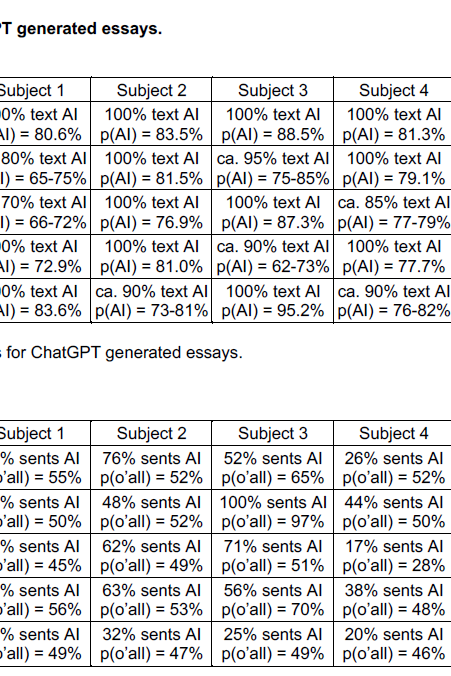
Robin Crockett (Academic Integrity Lead – University of Northampton) has run a small scale study investigating two AI detectors with a range of AI created assignments and has shared some of the initial results.
He used ChatGPT to generate 25 nominal 1000-word essays: five subjects, five different versions of each subject. For each subject, he instructed ChatGPT to vary the sentence length as follows: ‘default’ (i.e. I didn’t give it an instruction re. sentence length), ‘use long sentences’, ‘use short sentences’, ‘use complex sentences’, ‘use simple sentences’.
The table below shows the amount of the assignment which was detected as using AI in two different products: Turnitin and Copyleaks
| Essay 1 | Essay 2 | Essay 3 | Essay 4 | Essay 5 | |
| Turnitin | |||||
| Default | 100% AI | 100% AI | 76% AI | 100% AI | 64% AI |
| Long | 0% AI | 26% AI | 59% AI | 67% AI | 51% AI |
| Short | 0% AI | X | 31% AI | 82% AI | 27% AI |
| Complex | 33% AI | 15% AI | 0% AI | 63% AI | 0% AI |
| Simple | 100% AI | 0% AI | 100% AI | 100% AI | 71% AI |
| Copyleaks | |||||
| Default | 100% AI at p=80.6% | 100% AI at p=83.5% | 100% AI at p=88.5% | 100% AI at p=81.3% | 100% AI at p=85.4% |
| Long | ~80% AI at p=65-75% | 100% AI at p=81.5% | ~95% AI at p=75-85% | 100% AI at p=79.1% | 100% AI at p=80.6% |
| Short | ~70% AI at p=66-72% | 100% AI at p=76.9% | 100% AI at p=87.3% | ~85% AI at p=77-79% | 100% AI at p=78.4% |
| Complex | 100% AI at p=72.9% | 100% AI at p=81.0% | ~90% AI at p=62-73% | 100% AI at p=77.7% | 0% AI |
| Simple | 100% AI at p=83.6% | ~90% AI at p=73-81% | 100% AI at p=95.2% | ~90% AI at p=76-82% | 100% AI at p=84.9% |
X = “Unavailable as submission failed to meet requirements”.
0% -> complete false negative.
Robin noted:
Turnitin highlights/returns a percentage of ‘qualifying’ text that it sees as AI-generated, but no probability of AI-ness.
Copyleaks highlights sections of text it sees as AI-generated, each section tagged with the probability of AI-ness, but doesn’t state the overall proportion of the text it sees as AI-generated (hence his estimates).
Additional reading: Jisc blog on AI detection

LearnTech Spring Showcase 2023
| Friday 12th May |
| 10:30 – 14:15 Drop-in any time or attend specific taster sessions |
| TPod C (2nd Floor, Learning Hub, Waterside) |
Come along to the LearnTech Spring Showcase and meet the Learning Technology Team.
Find out about:
- What Learning Technology is.
- What the team can do for you.
- Changes to NILE.
- MyEngagement, tracking student engagement.
- Accessibility of content in NILE.
- Making NILE sites more engaging.
- NILE Analytics. How students are using your NILE site.
- Creating educational videos.
- The training and support available to you and your students.
Learn all about the Centre for Active Digital Education (CADE) and explore opportunities to enhance your teaching, using Artificial Intelligence, eXtended Reality, Games Based Learning or Distance Learning.
Share with us your Sunshine and Showers, what has been working well, and what we can improve. We want to hear your experiences. Whilst you are welcome to attend at any point there will also be a number of 30 minute themed parallel sessions running during the event.
| Time | Timed Parallel Topics |
| 11:15 to 11:45 | Using Windows Video Editor to edit video clips What is the Centre for Active Digital Education? How do I make NILE sites more engaging? |
| 11:45 to 12:15 | Drop in for general chat about interactive tools How do I track student’s digital engagement |
| 12:15 to 12:45 | Using Xerte Online Toolkits to create e-learning What is the Centre for Active Digital Education? How do I make NILE sites more engaging? |
| 13:15 to 13:45 | Using H5P (HTML5 package) for synchronous (real-time) and asynchronous (self-service) delivery of interactive learning resources in NILE. How do I track student’s digital engagement |
| 13:45 to 14:15 | Drop in for general chat about interactive tools What is the Centre for Active Digital Education? How do I make NILE sites more engaging? |
Cookie Policy: Biscuits will be provided during the event. 🍪
Please indicate your interest in attending by completing the signup form.
[Top Image: “Sunshine And Showers” by foilman is licensed under CC BY-SA 2.0.]

On the 15th March 2023, delegates attended a short debate on whether computers (particularly with Artificial Intelligence developments) are taking over (see introductory slides). A mix of onsite and remote participants heard from Lee Machado (Professor of Molecular Medicine) who argued with slides that computers are not taking over. Rob Howe (Head of Learning Technology) then presented the counter argument with slides prepared by Karl Downing (Digital Development Lead – IT Services). This was all beautifully summed up by Sue Attewell (Head of Edtech – Jisc National Centre for A.I.). Jatin Arora (President of the UON student AI society) spoke after the event on his reflections as his comments during the session were not captured.
AI is in a grey area at the moment – nothing is fully good or fully bad. It depends on the human on how it is used.
Jatin Arora (President of the UON student AI society)
The event concluded with a vote. The majority decided that computers were not taking over.
- 11 delegates agreed that they are taking over
- 43 delegates felt that they were not taking over
- 10 delegates abstained
Please feel free to listen to the recording (42 minutes) of the event and also contribute to the Padlet which was set up for the session.
If you are interested in discussions of this type then there are at least two further events of interest:
• 21st June 13:00 – 15:00 International debate and discussion around AI. Sign up TBA
• Implications and Ethical Dimensions of using Artificial Intelligence in Higher Education Teaching, Learning and Assessment.- https://reflect.ucl.ac.uk/aptconference/ on Friday 30th June.
Please contact Rob.Howe@northampton.ac.uk with any questions about the event or any follow-up.

You may have seen films where artificially intelligent devices either help or hinder humans – but where is it all going?
Artificial Intelligence will increasingly form part of our daily lives but what actually is it and what might be the benefits and challenges for us in our future home, study and work environments?
The debate, moderated by the UK’s National Centre for Artificial Intelligence, will raise questions for all of us about the way in which this technology will impact our lives.
This session is aimed at everyone, regardless of their background and level of expertise.
Hear both sides of the argument and vote at the end!
This event is taking place in person and online.
In person details and registration:
https://AIdebateinperson.eventbrite.com
Online details and registration:
https://AIdebateonline.eventbrite.com
In 2021, a small project was conducted to find out how students wanted to be communicated with (were there any tips and tricks that we were not already using?). The final list provided a few new ideas and have led to a broader discussion within Library and Learning Services about the way in which we communicate to all our stakeholders:
- Chalk boards in walkways (being used by Waterside Campus restaurant in walkways)
- Paper handouts on tables (used sometimes in food areas)
- Rollup banner
- Digital screens
- Social Media (noted that F/book popularity decreasing) but Instagram could be useful
- MyNorthampton / local app – it was asked if can it do notifications?
- NILE / VLE homepage
The group noted that we should use more of:
- Targeted messages (perhaps by subject area)
- Memes
- Put up main survey results on screen and what we are doing about them
- Have a competition which encourages user generated content
- Short tips
- Quick videos (under 3 mins….ideally much less)
They suggested that messages could use:
- Capital letters
- Note when services are FREE
- Bold text
- Text which is short and focused
- Text which quickly highlights the benefits and opportunities of the message
It was noted that senders should be cautious of jokes / cartoons – the message needs to apply to all and not offend audiences.
The Learning Technology Team was officially created on 1st September 2007 (15 years ago) although some of the key parts were actually started when Rob Howe became the first UON Learning Technology Adviser on 1st August 1997 (25 years ago).
Over the years we have worked with some amazing staff and students.
We’ve gone from strength to strength over the years and have a lovely collection of awards to our name over this time including:
Blackboard Catalyst Award for Leading Change Winner, 2018
Belinda Green – Computing, Women in IT Excellence Awards, 2018
Changemaker Team of the Year, 2017
ALT – second place Team of the Year, 2017
Iain Griffin – ALT Learning Technologist of the Year (Highly commended), 2016
ALT – winner of the team award, 2014
Thank you to everyone who has made this all possible. You can see more details about the team in the Unify news article (login may be required)
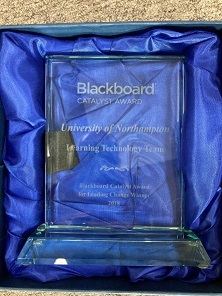
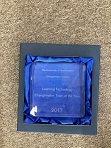
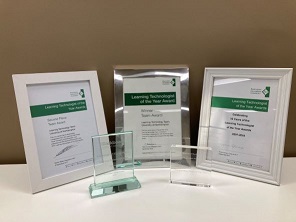
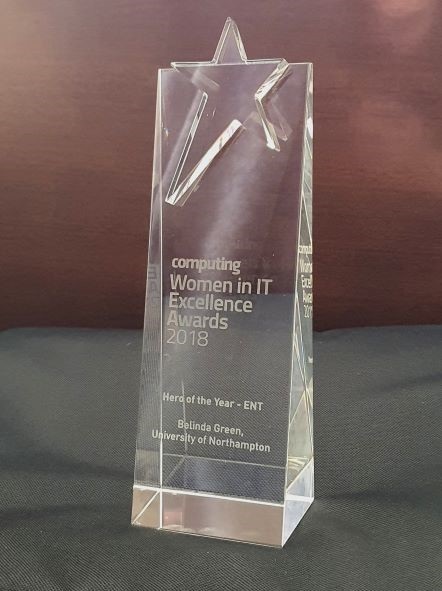
This post collects together a few useful updates from the Learning Technology Team.
NILE related
• Brand new to NILE this summer is greater support for pronouns and name pronunciation. Staff and students who would like to can now add a written and an audio pronunciation of their name, and can select their preferred pronouns. If these are added, they will be displayed on the Ultra course profile cards. Staff and students can also add their photo to their course profile too. Adding a photo, selecting your preferred pronouns, and adding a pronunciation can be done from the NILE profile page:
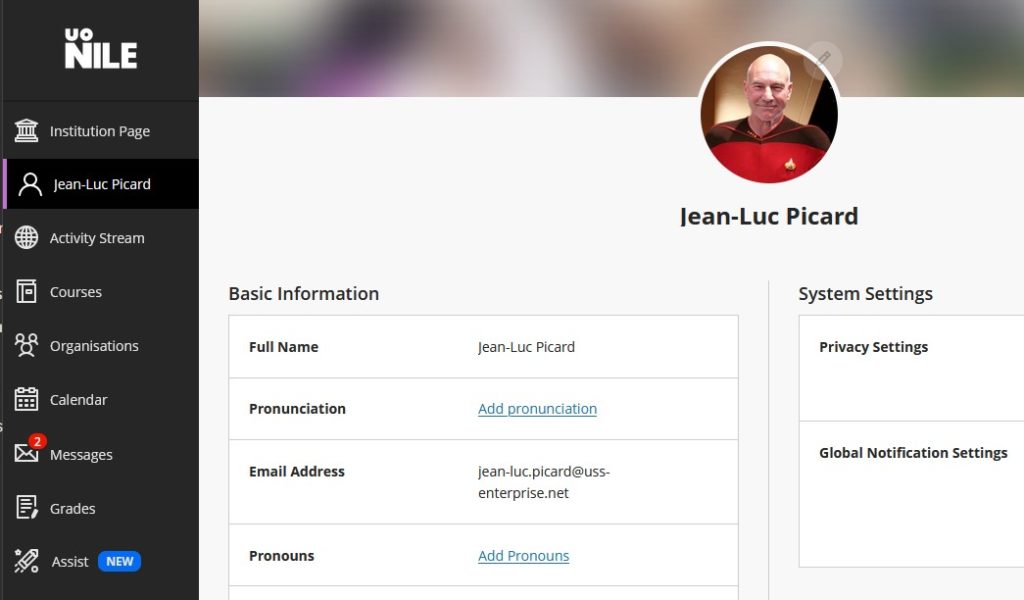
• Blackboard is upgraded every month, with most of the new features and enhancements being applied to Ultra courses. You can always find out all about the upgrades and new features at: https://blogs.northampton.ac.uk/learntech/category/nile-update/
• The University of Northampton is now three years into its five year project to move NILE from Blackboard Original to Blackboard Ultra courses. While it might seem like we’ve only completed the first year of a three year project, the project actually started back in 2019, around six months before the UK’s first COVID lockdown in March 2020. You can find out more about the project, at: https://blogs.northampton.ac.uk/learntech/2022/07/22/blackboard-ultra-review-summer-2022/
• Have you created a great Ultra course? Or, do you know someone who has? We’re really keen to find out more about how staff have used Ultra courses this year, and to highlight and celebrate example of good practice with Ultra. Find out more, and make a nomination (before the 18th of September) at: https://forms.office.com/r/B4s9rdai3s
• What new features do you want to see in your Ultra courses? Tell us (before the 18th of September) here: https://forms.office.com/r/LH6TET1HUX
• Would you like help creating captivating NILE content? If so, Anne Misselbrook, E-Learning/Multimedia Resources Developer, is the person to talk to. Find out more about how she can help you here: https://blogs.northampton.ac.uk/learntech/2022/07/08/creating-captivating-nile-content/
• And if creating captivating, interactive NILE content is your thing, you’ll also want to find out about H5P, which is new to NILE this summer: https://blogs.northampton.ac.uk/learntech/2022/08/05/h5p-tutor-friendly-tools-within-nile-for-creating-engaging-and-impactful-content/
• Back in January, we announced some important changes to the way that Turnitin works in Blackboard Original courses. From the end of August, 2022, all Turnitin assignments submitted to Blackboard Original courses via a Turnitin Basic submission point will become permanently read-only (i.e., all feedback and marks will be locked, and will not be able to be modified). Turnitin assignments submitted to Ultra courses are not affected by this change. Since UON changed from Turnitin Basic to Turnitin LTI assignments back in February 2022, all Turnitin assignments in Original courses set up since 7th February, 2022, will have used Turnitin’s new Turnitin LTI assignment, which means that staff are unlikely to be impacted at the end of August. To read the original blog post about the changes to Turnitin, please see: https://blogs.northampton.ac.uk/learntech/2022/01/31/important-updates-to-turnitin/
Academic updates
• MyEngagement (Student Engagement and Analytics) – the replacement for LEARN is now live. Please contact Sean.Brawley@northampton.ac.uk for any training, or come along to one of the scheduled training courses: https://libguides.northampton.ac.uk/learntech/staff/nile-help/scheduled-training#Introduction-to-MyEngagement
• Launch of the Centre for Active Digital Education (CADE). If you would like to be more involved in the work of the Centre, or have a general interest in Game Based Learning, Artificial Intelligence, Distance Learning, or Virtual Reality then please email ade@northampton.ac.uk. You can find out more about CADE at: https://blogs.northampton.ac.uk/learntech/2022/02/10/introducing-the-centre-for-active-digital-education-ade/
• Interested in gamification? Find out more about the GAMING: (Gamification for the Advancement of Multiprofessional/Interprofessional Groupwork) project at: https://blogs.northampton.ac.uk/learntech/2022/05/03/gaming-gamification-for-the-advancement-of-multiprofessional-interprofessional-groupwork/
• Dr Anastasia Gouseti considers why supporting teachers and students with developing critical digital literacies (CDL) appears to be more timely than ever. In March, she presented a new framework of critical digital literacies created by the DETECT Erasmus+ project, which you can find out about at: https://blogs.northampton.ac.uk/learntech/2022/03/24/reconceptualising-critical-digital-literacies-in-the-context-of-compulsory-education-led-by-dr-anastasia-gouseti/
• In February, Helen Caldwell, Emma Whewell, Cristina Devecchi, and Rob Howe, ran the Teaching and supporting a digital future: UoN Showcase event. You can review the recordings of all the sessions at: https://blogs.northampton.ac.uk/learntech/2022/02/10/teaching-and-supporting-a-digital-future-uon-showcase-4th-february-2022/
Training, support, and other useful links
• All staff and students are able to check their digital fitness / digital capability using the Jisc Digital Discovery Tool. Find out how to access this here: https://askus.northampton.ac.uk/Learntech/faq/260311
• Have you discovered the excellent resources available on LinkedIn Learning? This is available for all staff and students. Information for staff about LinkedIn Learning is available at: https://mynorthamptonac.sharepoint.com/sites/staff/Pages/LinkedIn-Learning-from-UON.aspx (UON staff login required), and is available for students at: https://www.northampton.ac.uk/student-life/university-living-laptops-trips-and-internships/linkedin-learning-for-students/
• Finally, if you need support with NILE, please see guides and FAQs on the Learning Technology Team website (https://libguides.northampton.ac.uk/learntech), come along to one of our training sessions (https://libguides.northampton.ac.uk/learntech/staff/nile-help/scheduled-training), or get in touch with your learning technologist (https://libguides.northampton.ac.uk/learntech/staff/nile-help/who-is-my-learning-technologist).
H5P provides the author with a variety of content types to be able to produce interactive, responsive content in NILE playable on devices. Use polling tools for real-time interaction, the Chase to create H5P content in competition mode, interactive workbooks where users input can be saved and printed, and many more content types.
Use the H5P toolset to fairly quickly create impressive resources for students to use in their learning on NILE sites. Provide online content which responds to a user’s input. Engage students as they participate in various online e-tivities.
Awareness and practice sessions are available from 19 August to 22 December 2022. To book a place please visit U4BW using the links below.
https://abw.northampton.ac.uk/BusinessWorld/Login/Login.aspx (On Campus link)
https://uonapps.cloud.com/ (Off Campus link)
If you experience any problems booking via U4BW, please email Marie.Graham@northampton.ac.uk with your booking request.
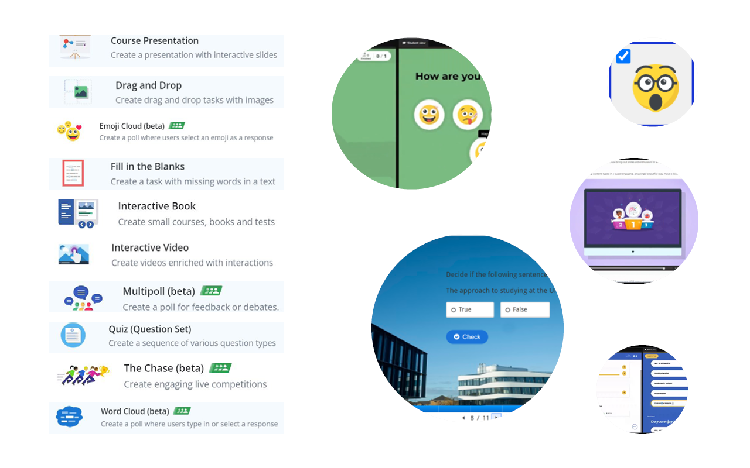
Recent Posts
- NILE Ultra Course Award Winners 2025
- Blackboard Upgrade – June 2025
- Learning Technology / NILE Community Group
- Blackboard Upgrade – May 2025
- Blackboard Upgrade – April 2025
- NILE Ultra Course Awards 2025 – Nominations are open!
- Blackboard Upgrade – March 2025
- Blackboard Upgrade – February 2025
- Blackboard Upgrade – January 2025
- Blackboard Upgrade – December 2024
Tags
ABL Practitioner Stories Academic Skills Accessibility Active Blended Learning (ABL) ADE AI Artificial Intelligence Assessment Design Assessment Tools Blackboard Blackboard Learn Blackboard Upgrade Blended Learning Blogs CAIeRO Collaborate Collaboration Distance Learning Feedback FHES Flipped Learning iNorthampton iPad Kaltura Learner Experience MALT Mobile Newsletter NILE NILE Ultra Outside the box Panopto Presentations Quality Reflection SHED Submitting and Grading Electronically (SaGE) Turnitin Ultra Ultra Upgrade Update Updates Video Waterside XerteArchives
Site Admin

